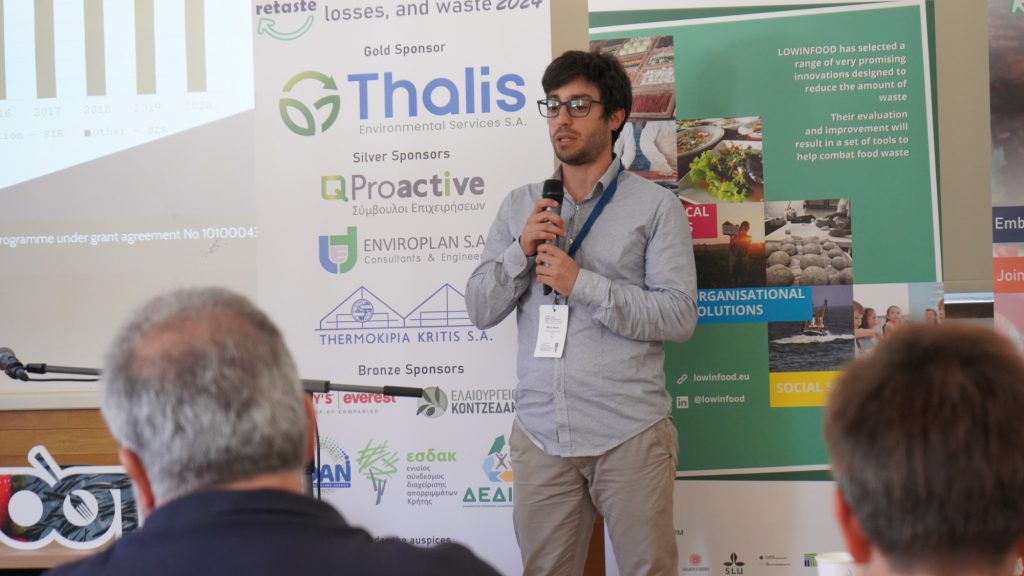
Impact of the platform to donate surplus food to qualified charities on food waste prevention and economic sustainability
On 26 September 2024, at the Retaste Conference, LOWINFOOD partner Marco Nasso (University of Tuscia) presented the results of the study carried out in LOWINFOOD about the platform to donate surplus food to qualified charities.
This platform facilitates surplus food donation to qualified charities by individual producer organizations and producer associations, providing regulated prices for the withdrawn products. The platform, operational since 2012, has gradually expanded to include 50 organisations and associations from different Italian regions. Over this period, more than 36,000 tons of fresh fruit and vegetables have been withdrawn from the market and distributed to charities, with the value of donated food exceeding 10 million euros per year. This represents a significant social benefit and economic return for farmers.
The analysis carried out by LOWINFOOD researchers focused on the period 2012 – 2022 and evaluated the performance of the platform using the so-called food waste prevention calculator developed, which allows for a consistent assessment of economic and environmental benefits. The integration of this food waste prevention calculator into the platform evaluation provided a robust tool for assessing the impact related to food waste prevention actions. The results indicate significant contributions to economic and environmental sustainability by optimizing surplus food use.
Further, researchers conducted an economic and environmental benefits assessment considering three scenarios: (a) Full Donation, where all withdrawn food is donated to charities; (b) Mixed Use, with half of the withdrawn food being donated, and the other half being used for valorization purposes; and (c) Waste management, where minimal surplus is withdrawn and redistributed, food waste are mainly disposed of. The results indicated that the full donation scenario presented the highest net environmental savings, with significant reductions in emissions and resource use, whereas the waste management scenario showed negative impacts, with increased cost for disposal and lost benefits from donations and valorization.
Share on Facebook Share on Twitter Share on Pinterest